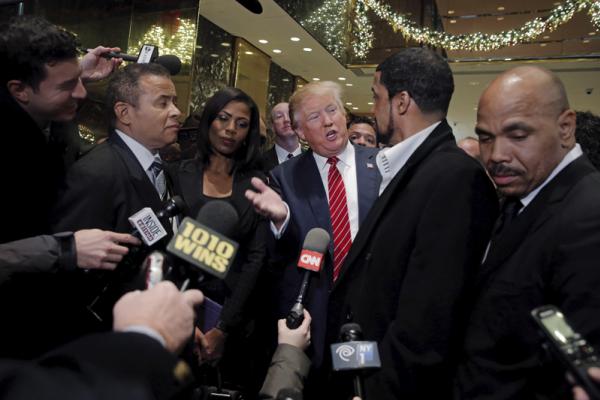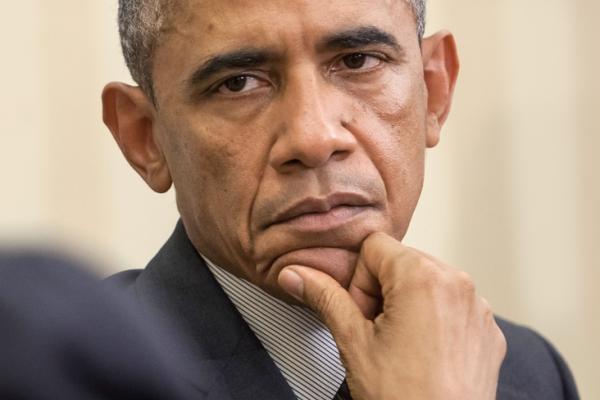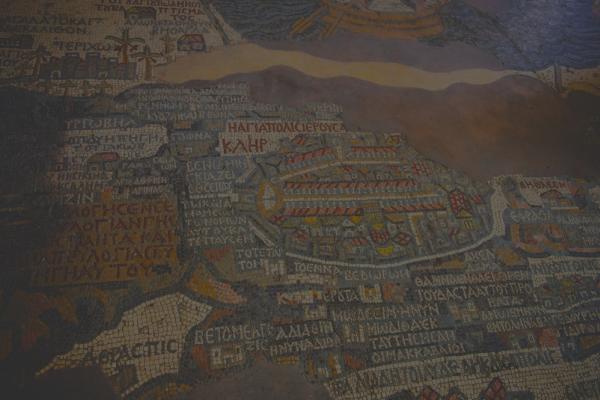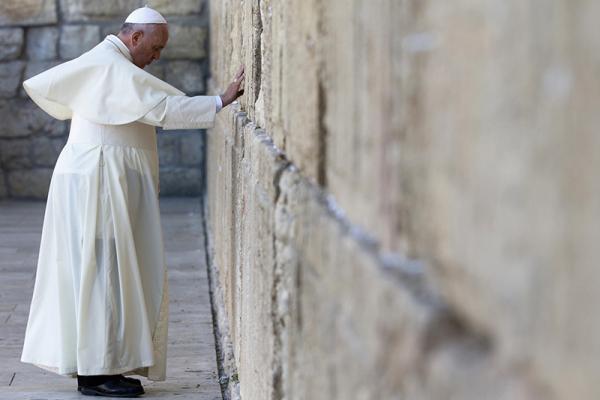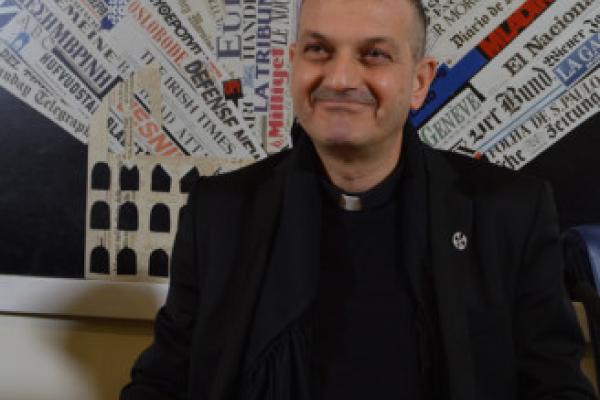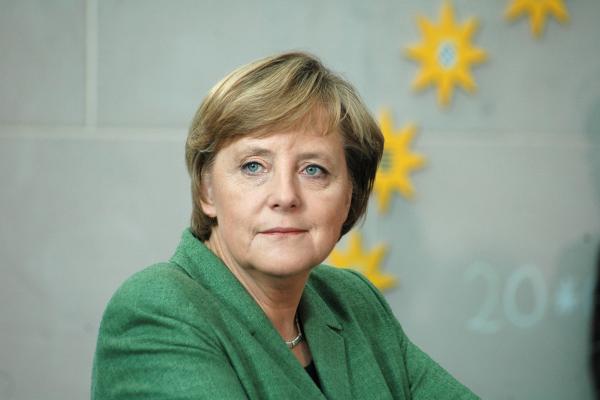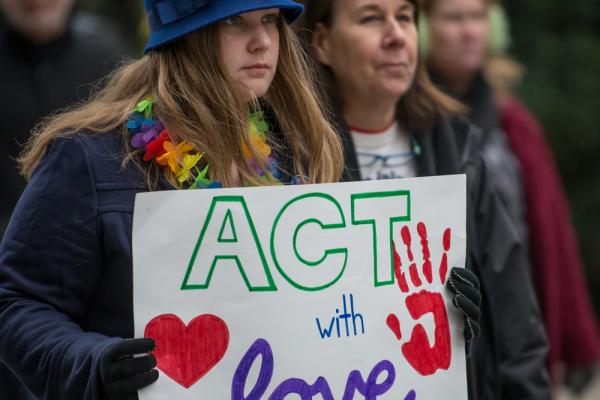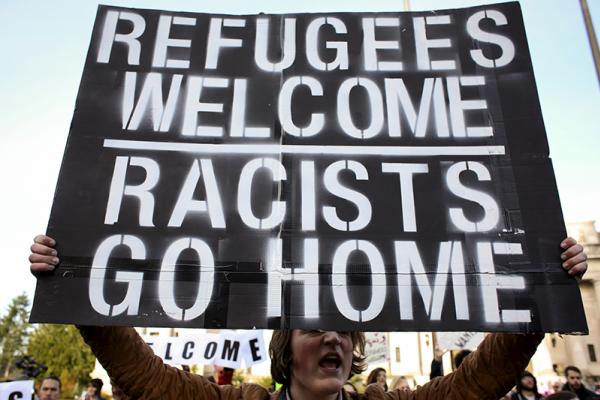Without mentioning Republican presidential candidate Donald Trump by name, Detroit Archbishop Allen Vigneron has blasted proposals like Trump’s that would specifically bar Muslims from the U.S., saying the idea “fractures the very foundation of morality on which we stand.”
Vigneron’s denunciation, in a letter he sent on Dec. 10 to his priests, is significant because Catholic leaders have been strong defenders of religious freedom in recent years but have been largely quiet in the wake of Trump’s controversial pitch earlier this week to bar all Muslims from the U.S.
“While the Catholic Church refrains from weighing in for or against individual candidates for a particular political office, the Church does and should speak to the morality of this important and far-reaching issue of religious liberty,” Vigneron wrote in the letter, which he also sent to imams in his state.
President Obama supports the right of Muslim Americans to celebrate religious holidays, the White House said Dec. 11. He just can’t give them the day off.
Responding to a petition on the White House’s “We the People” site, the White House declined to declare federal holidays for the Muslim holy days of Eid al-Adha and Eid al-Fitr.
That’s because Congress has only designated 10 federal holidays each year: New Year’s Day, Martin Luther King, Jr. Day, Washington’s Birthday, Memorial Day, Independence Day, Labor Day, Columbus Day, Veterans Day, Thanksgiving, and Christmas.
“Proposals for new permanent federal holidays are typically the province of Congress,” the White House said.
So what do we do about ISIS? The U.S. and the U.K. have decided that the answer is to bomb them. And it’s looking more and more like the answer will become to send troops.
But what do we do about ISIS? Does it make a difference whether I respond as an American or as a Christian? These days it’s hard to tell a distinction between the two. And that’s the question, and the answer, that scares me most.
The Vatican has said that Catholics should witness to their faith but not undertake organized efforts to convert Jews, a significant step forward in the once tense relations between the two faiths.
The document released on Dec. 10 by the Vatican’s Commission for Religious Relations With the Jews also pushed for greater efforts to fight anti-Semitism.
In its most explicit commentary on evangelization regarding Jews, the document said Catholics should take a different approach to Judaism than to other religions.
A Syrian priest held hostage for months by the ISIS terrorist group is certain his life was saved due to his interfaith work, despite being threatened with beheading by jihadists if he did not renounce Christianity.
The Rev. Jacques Mourad, a Syriac Catholic priest, was taken hostage in May from the Mar Moussa monastery, situated between the capital Damascus and the city of Homs. He and a volunteer from the monastery were forced into a car and driven for four days, during which time Mourad said he thought he would be killed.
“We could only perceive the sense of the desert. In that moment … I thought it was over,” he told members of Rome’s Foreign Press Association on Dec. 10, the first time he has spoken in detail about his odyssey since he escaped.
Speakers at the rally included representatives of the Islamic and Christian communities, the National Organization for Women, Code Pink, and Ghada Mukhdad, a Syrian refugee and member of the Syrian Civil Coalition which, according to their website, is a “lobby of Syrian civil society organizations, activists, and initiatives” that seeks to address “the increasing gap between the needs and priorities of the Syrian society on one hand and those making decisions concerning Syria.”
Time magazine’s 2015 “Person of the Year” is a self-identified conservative Christian, but not one of the many running for president of the United States. While the dynamics of faith and politics are different in Europe, German leader Angela Merkel is an example of a conservative Christian living out her faith in the public square quite differently than we see in the U.S.
Time, which calls her “Chancellor of the Free World,” characterizes her strong leadership of economic and political crises in Europe as “no flair, no flourishes, no charisma, just a survivor’s sharp sense of power and a scientist’s devotion to data.” She may be a quantum chemist, but she’s also an Evangelical Lutheran preacher’s kid with an unwavering faith.
This week's Wrap was guest curated by Sojourners contributor Adam Ericksen. Read along for his top stories and notes from the week!
There was a lot of negativity in the news this week, but mercy also filled the airwaves. In case you missed it, here’s a list of some merciful events from the week:
1. Pope Francis Opens the Door to ‘Year of Mercy’ in a Time of Fear
Sure, we have some differences, but we’re still crushing on the Pope. “To pass through the holy door means to rediscover the infinite mercy of the Father who welcomes everyone and goes out personally to encounter each of them.”
Since the Republican presidential front-runner announced after San Bernardino that he would close America’s borders to Muslims, a debate has ensued about what “radicalization” means and how far we as a nation are willing to go to protect ourselves from it. So-called liberals (and even some in the Republican party’s mainstream) have said, “Not all Muslims have been radicalized.” To this Donald Trump retorts, “Until we know which ones have been, let’s keep them all out.” The unquestioned consensus in America’s public square is that we can only be safe by figuring out who the un-American terrorists are and getting rid of them.
But where we're from in North Carolina, we should not be so naïve. We have a disproportionate share of homegrown terrorists.
Johnson Ferry Baptist Church, a Southern Baptist megachurch north of Atlanta, has helped resettle a Syrian family, despite an order from Gov. Nathan Deal that the state would not accept Syrian refugees.
Bryant Wright, the church’s pastor and former president of the Southern Baptist Convention, told CNN Dec. 9 he understands the governor is “concerned about the security of the citizens of the state. But as Christians and as a church, we want to reach out with the love of Christ to these folks.”
He told The Atlanta Journal-Constitution that his church had been planning to help the family before the recent attacks in France.
